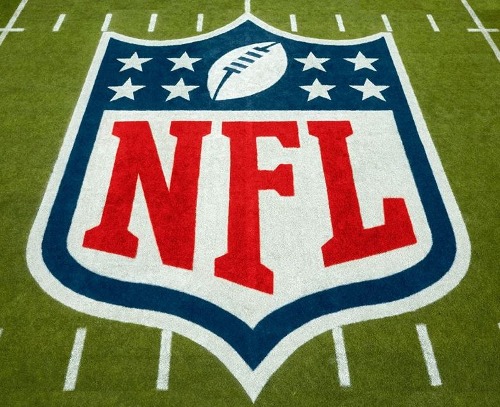NFL
NFL Ordered To Pay $4.7B In ‘Sunday Ticket’ Lawsuit

A jury in U.S. District Court ordered the NFL to pay more than $4.7 billion in damages Thursday after ruling that the league violated antitrust laws in distributing out-of-market Sunday afternoon games on its “Sunday Ticket” premium subscription service.
Under federal antitrust laws, NFL could end up being liable for as much as $14.39 billion after jury’s ruling
According to Joe Reedy of The Associated Press, the jury awarded $4.7 billion in damages to the residential class and $96 million in damages to the commercial class. Since damages can be tripled under federal antitrust laws, the NFL could end up being liable for $14.39 billion.
The lawsuit covered 2.4 million residential subscribers and 48,000 businesses in the United States who paid for the package of out-of-market games from the 2011 through 2022 seasons on DirecTV.
Additionally, the lawsuit claimed the league broke antitrust laws by selling its package of Sunday games at an inflated price. The subscribers also say the league restricted competition by offering “Sunday Ticket” only on a satellite provider.
NFL statement: “We are disappointed with the jury’s verdict today in the NFL Sunday Ticket class action lawsuit. We will certainly contest this decision as we believe that the class action claims in this case are baseless and without merit. We thank the jury for their time and… https://t.co/aLyC6cssDB
— Ari Meirov (@MySportsUpdate) June 27, 2024
The NFL said in a statement that it will appeal the verdict.
“We are disappointed with the jury’s verdict today in the NFL Sunday Ticket class action lawsuit. We continue to believe that our media distribution strategy, which features all NFL games broadcast on free over-the-air television in the markets of the participating teams and national distribution of our most popular games, supplemented by many additional choices including RedZone, Sunday Ticket and NFL+, is by far the most fan friendly distribution model in all of sports and entertainment,” the league said.
The jury of five men and three women deliberated for almost five hours before reaching its decision.
“We will certainly contest this decision as we believe that the class action claims in this case are baseless and without merit. We thank the jury for their time and service and for the guidance and oversight from Judge [Philip] Gutierrez throughout the trial.”
Post-trials motions will be heard Wednesday, July 31
Per ESPN’s Kevin Seifert, post-trial motions will be heard July 31, including one to set aside the verdict. If the verdict isn’t set aside, the NFL will appeal to the Ninth Circuit Court. If the NFL pays the damages, it could cost each of the 32 teams approximately $449.6 million.
The trial lasted three weeks and featured testimony from NFL commissioner Roger Goodell and Dallas Cowboys owner Jerry Jones.
“We have been clear throughout that it is a premium product. Not just on pricing but quality,” Goodell said during cross-examination in a Los Angeles courtroom. “Fans make that choice whether they wanted it or not. I’m sure there were fans who said it was too costly.”
There will be a hearing July 31 for post-trial motions, including one to set aside the verdict. Assuming the verdict remains intact, NFL will appeal to the 9th Circuit — and hope that the damages and any required changes to the structure of Sunday Ticket will be stayed. https://t.co/FiQq67hDfm
— Kevin Seifert (@SeifertESPN) June 27, 2024
Former CBS Sports chairman Sean McManus said in a memo to the NFL that the network had always thought “the concept has always been that these packages are sold at a premium, thereby limiting distribution.”
“Justice was done. The verdict upholds protection for the consumers in our class. It was a great day for consumers,” plaintiffs attorney Bill Carmody said.
During his closing remarks, Carmody showed an April 2017 NFL memo that showed the league was exploring a world without “Sunday Ticket” in 2017. It was a time when cable channels would air Sunday afternoon out-of-market games not shown on Fox or CBS.
NFL had the right to sell “Sunday Ticket” under its antitrust exemption, but that only covered over-the-air broadcasts
Furthermore, the league maintained it had the right to sell “Sunday Ticket” under its antitrust exemption for broadcasting. The plaintiffs said that only covered over-the-air broadcasts and not pay TV.
DirecTV had “Sunday Ticket” from its inception in 1994 through 2022.
The league signed a seven-year deal with Google’s YouTube TV that began with the 2023 season. The lawsuit was originally filed in 2015 by the Mucky Duck sports bar in San Francisco. However, it was dismissed in 2017.
Two years later, the Ninth Circuit reinstated the case. The U.S. federal court of appeals has jurisdiction over California and eight other states. Gutierrez ruled last year the case could proceed as a class action.
This is the biggest verdict the NFL has ever received in court.











